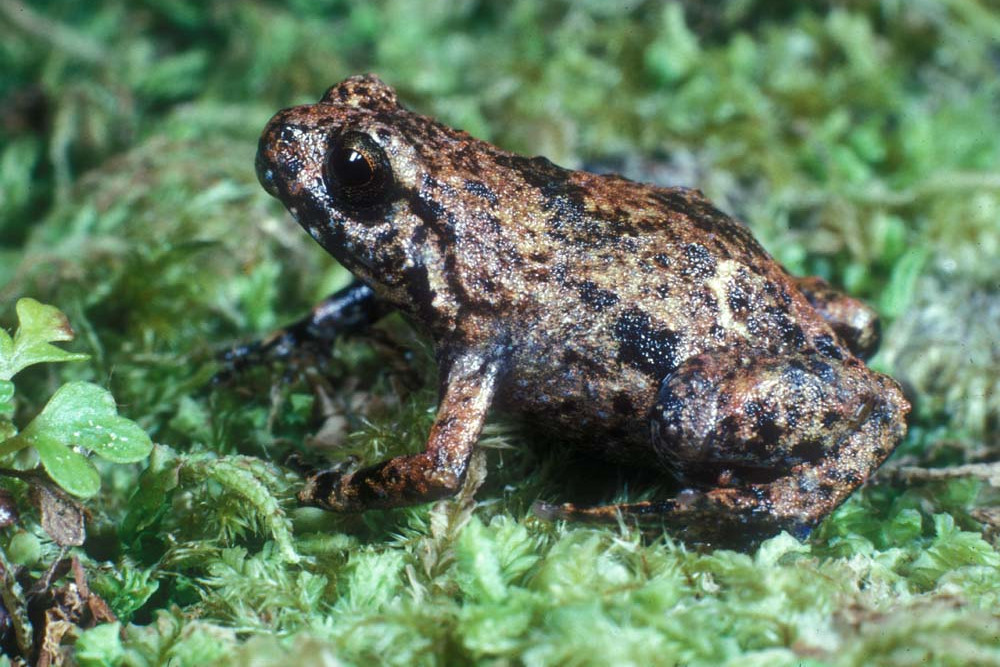On The Land
12 June, 2024
Project to protect endangered frog
A LITTLE-known critically endangered frog has jumped into the spotlight as a new project starts, aimed at improving its chances of survival.

The mountain-top nursery frog is only found near Mt Lewis, west of Port Douglas.
Terrain NRM secured funding last week through the Australian Government’s Saving Native Species (Priority Species) Grants for a project focused on protecting the rare frog’s breeding sites at the heights of Mt Lewis National Park.
The project aims to reduce threats to the survival of the mountain top nursery frog and will be delivered by Terrain NRM in partnership with Western Yalanji traditional owners, James Cook University researchers, Gulf Savannah NRM and the Queensland Parks and Wildlife Service.
Project leader Dr Andrew Dennis said feral pigs were a major threat, and pig exclusion fencing would be installed around known frog breeding sites. Pig control measures would also begin soon, as well as species monitoring work.
“These frogs are only found in dense and small-leafed, or microphyll, rainforest at altitudes above 1100 metres - they’re considered to be one of the most range-restricted frog species in Australia,” Dr Dennis said.
“Because of this they’re extremely vulnerable to the effects of climate change - from warming to changes in rainfall and cloud distribution.
“Feral pigs are another big threat, and pigs are increasing in numbers at high altitudes and disturbing and, in some cases, destroying the small palms and woody debris that are critical habitat for the mountain top nursery frog.
“Western Yalanji traditional owners will help to monitor exclosure fencing and help with surveying the feral pig damage on Mt Lewis, and we’ll also work with Queensland Parks and Wildlife rangers on the most effective control measures.
“About 2000 square metres of frog breeding habitat will be fenced off.
“We will also be partnering with James Cook University on research to monitor protected and unprotected habitat, looking at the breeding success of mountain top nursery frogs, the amount of woody debris and the numbers of small palm trees (Linospadix apetiolatus) that they live in and near.
“We are excited to have funding to work together and find the best ways to help this tiny, critically endangered frog. It faces the same challenges as a suite of other mountain top frogs with tiny distributions, so anything we learn from this project may help other similar species.
“We hope that these protection measures will allow maximum survival and reproduction, to give the species its best chance of being resilient to climate change, and that they will also guide measures to build resilience in other frog species in the future.”
FAST FACTS: MOUNTAIN-TOP NURSERY FROGS
• Listed nationally as critically endangered
• One of the most range-restricted frogs in Australia – they are only found on high mountain top ridges near Mt Lewis west of Port Douglas
• Adults are 2cm or smaller
• The males call from elevated spots in the small palms, and that’s where they also protect small clusters of eggs which develop into froglets within the egg.


